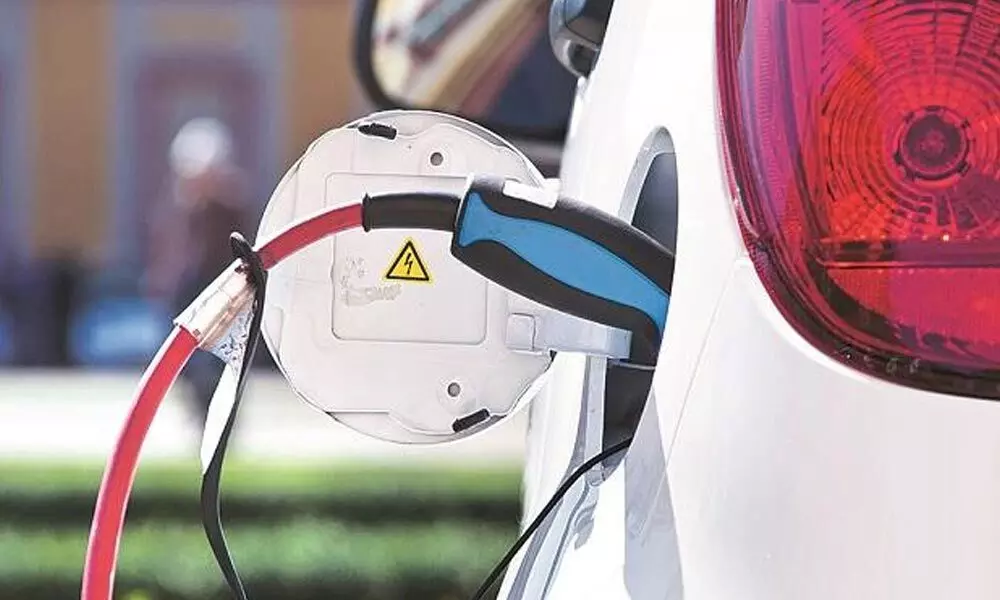Rs. 94,000-cr investment for EVs in next 5-yrs to benefit real estate sector too
If India achieves its target of 30 per cent electric vehicle (EV) sales by 2030, which may sound ambitious, but achievable goal, it will bring in an overall investment of $12.6 billion (Rs94,000 crore) not only across automotive value chain, but also in realty and infrastructure space, over the next five years.
image for illustrative purpose

If India achieves its target of 30 per cent electric vehicle (EV) sales by 2030, which may sound ambitious, but achievable goal, it will bring in an overall investment of $12.6 billion (Rs94,000 crore) not only across automotive value chain, but also in realty and infrastructure space, over the next five years.
For instance, nearly 13.5 million sq ft space will be required by 2025 for EV charging stations only. Colliers estimates that India will need about 26,800 public charging spots by 2025, requiring space of about 13.5 mn sq ft (1.2 mn sq m). Landlords can outsource dedicated charging stations to charging service providers at busy locations. They can also enter into a revenue share model with charging service providers. There is also ample scope for developers to develop retail and recreation spaces in proximity to charging stations.
It does not require any rocket science to understand that the overall investments in the EV sector will certainly benefit the Indian real estate sector in the form of setting up new or augmenting manufacturing units, industrial parks, and clusters with focus on last mile delivery by e-Commerce firms and 3PL companies, government push for electrification of public transport, tax benefits and incentives for first time buyers amongst others.
In India, the transport sector is currently the third largest emitter of CO2. So, EVs can be a game changer. Real estate players can tap into the opportunity for manufacturing, warehousing, charging stations and dealerships of EVs. The government has a conservative scenario of manufacturing 110 GWh of EV batteries by 2030. This can spawn manufacturing requirement of about 1,300 acres of land pan-India. It is estimated that India will need about 26,800 public charging spots by 2025, requiring space of about 13.5 mn sq ft (1.2 mn sq m). Landlords can outsource dedicated charging stations to charging service providers at busy locations. They can also enter into a revenue share model with charging service providers. There is also ample scope for developers to develop retail and recreation spaces in proximity to charging stations. Interestingly, at present, as many as 15 Indian States have either approved or notified EV policies, with six more states in the draft stage. States like Delhi, Gujarat, Maharashtra, and Meghalaya are focusing on demand incentives, whereas southern states and Uttar Pradesh are focusing on manufacturer-based incentives. States like Maharashtra, Delhi and Gujarat having strong demand side incentives should have provisions to set up industrial parks/clusters for EV or manufacturing of ancillary components with plug-and-play. Various state governments are also encouraging automobile manufacturers to ramp up local production of EVs to reduce the country's dependence on crude oil imports and curb vehicular pollution, which, in turn, is also expected to fuel the growth of realty demand. Significantly, India committed to become carbon neutral by 2070 which will entail meeting several milestones including reducing carbon emission per unit of GDP by 45 per cent. Electrification of the transport sector is pivotal as it is the third major contributor of emissions.

